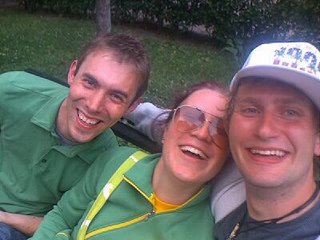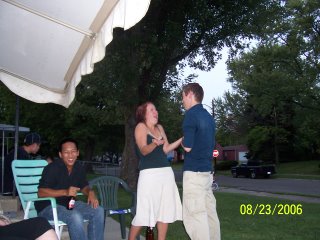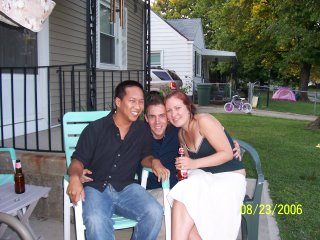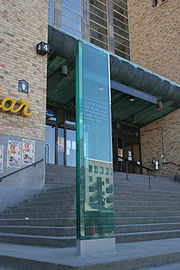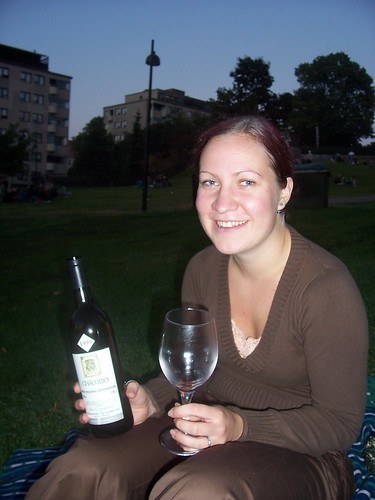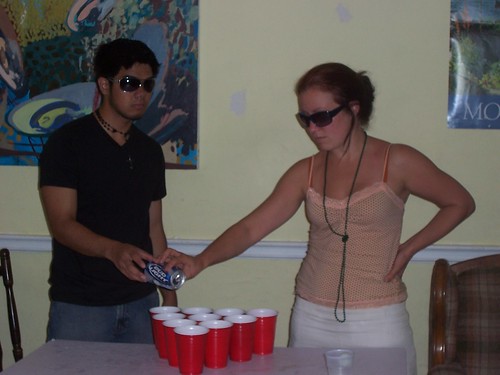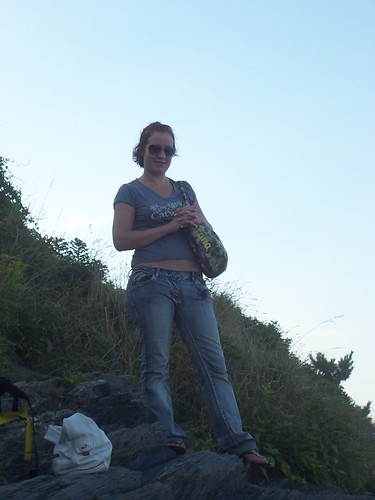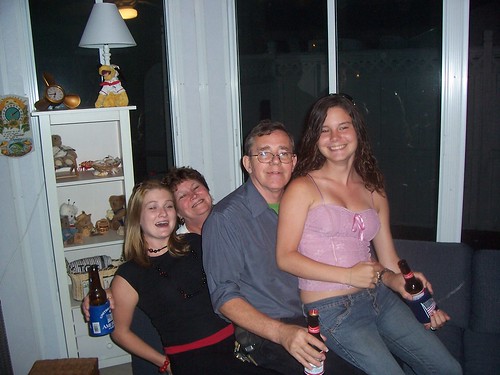24 September 2006
Court says 25,000 euros is too much to pay to fondle bossom
22 September 2006
Finnish Beer Commercials
Not a commercial, but from a Finnish sketch comedy show:
20 September 2006
20 Sept 2006
- Trump asking investors for funds to open a holiday resort in Lapland.
- Finnish Muslim arrested in Georgia
- YTV travelcard system for the Helsinki region to get an overhaul
Twice bitten drunkard bites back
It sounds like a joke too removed from reality to warrant a laugh. So this guy gets on a train, right, and travels 7 hours cause he wants to see the panda's in beiging. He gets on the train and realizes that he's not so comfortable (maybe a bit of motion sickness), so he starts knocking back the beers. Four bottles later he decides it's nap time cause he's pretty toasted. He wakes up as the train arrives and rushes over to see the pandas. After such a trip he naturally decides a look isn't enough so he scales the enclosure gate and scurries over to give the panda a hug. As soon as he touches it the panda it becomes startled and turns and bites him on both legs. The man, angry at his teddy bear attacker, bites it on the back. The man is now in the hospital. The panda is continuing to eat bamboo and take long naps. Doh.
16 September 2006
Newsies
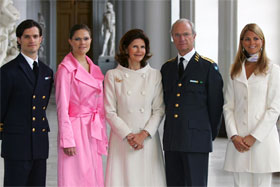 Swedish royal family come and visit
Swedish royal family come and visit- Police at Brown not the only ones under fire these days
- Elections in Sweden tomorrow to test the strength of the welfare state model
- Today's featured article on Wikipedia: caffine. Just as I'm questioning my addiction to it. A sign? Perhaps.
14 September 2006
Kuudos to self
 It's not really my style to brag, but in this case I think I'll give credit where it's due. Columbus, Ohio was named last month as the 3rd drunkest city in the US. Is it any coincidence that Teija and I spent the month of August in Columbus? I think not. Finnish drinking brought to Ohio=Columbus 3rd drunkest city.
It's not really my style to brag, but in this case I think I'll give credit where it's due. Columbus, Ohio was named last month as the 3rd drunkest city in the US. Is it any coincidence that Teija and I spent the month of August in Columbus? I think not. Finnish drinking brought to Ohio=Columbus 3rd drunkest city.
13 September 2006
Finns support tougher alcohol policy
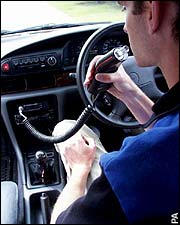 Newsroom Finland is reporting that Finns are in favor of tougher alcohol policy and slightly in favor of a slight increase in the already high alcohol tax (only recently cut 33% on average). Also supported was the use of alcolocks, a product already on trial in Sweden that prevents drivers from starting a car if they fail a breathalyzer test connected to their ignition system. The alcolock system still seems to be too expensive to justify, and there are a number of ways one could circumvent the control and still drive drunk, but if costs come down it could serve as a deterrent in coordination with other technologies and techniques.
Newsroom Finland is reporting that Finns are in favor of tougher alcohol policy and slightly in favor of a slight increase in the already high alcohol tax (only recently cut 33% on average). Also supported was the use of alcolocks, a product already on trial in Sweden that prevents drivers from starting a car if they fail a breathalyzer test connected to their ignition system. The alcolock system still seems to be too expensive to justify, and there are a number of ways one could circumvent the control and still drive drunk, but if costs come down it could serve as a deterrent in coordination with other technologies and techniques.
12 September 2006
Bush neglect of Helsinki not a signal of problems
"I am quite happy that nobody has to come here to celebrate that we have been freed from the yoke of communism."
11 September 2006
Is a vodka just a vodka?
 The latest qualm that threatens to shake the EU down to its very foundations: answer the age old question, what can truly be considered and sold as a vodka?
The latest qualm that threatens to shake the EU down to its very foundations: answer the age old question, what can truly be considered and sold as a vodka?EU member states are currently quarrelling over what raw materials should be allowed, with some countries saying any agricultural produce is acceptable and others arguing that real vodka is made only from grain or potato.Luckily for all EU nationals, a Finn partook in the tasting as well, making the world a safer place for all those who binge in it:
Reijo Kemppinen, a Finn who is the European Commission's top man in the UK. He enjoys ice cold vodka while singing traditional songs as a warm-up for the Finnish May Day feast.So, what do you say? Me, I'd get rid of the pulp vodka but allow any of the others. It saves creating a new category of alcohol over slight deviations and diversifies the vodka category more than along price lines.
10 September 2006
The other tragedy of the 11th
Political career
Lindh was born in Enskede, a southeastern suburb of Stockholm, but grew up outside Enköping, where she became involved in politics at the age of twelve. As she joined the local branch of the Swedish Social Democratic Youth League, protesting against the Vietnam war was one of her top priorities.
Anna Lindh studied at Uppsala University and graduated as a Candidate of Law (jur. kand.) in 1982. The same year she was elected a Member of Parliament, the Riksdag. In 1984 she became the first woman president of the Swedish Social Democratic Youth League. Her six years as president were marked by a strong commitment to international affairs, for Nicaragua, Vietnam, South Africa and the Palestinians, and against the arms race.
She served as a Member of Parliament until 1985, and again from 1998. From 1991 to 1994 she was Commissioner of Culture and Environment and Deputy Mayor of Stockholm. In 1994, following a Social Democratic election victory, the new Prime Minister of Sweden Ingvar Carlsson made her Minister for the Environment. One of her legacies is her pioneering work towards a European Union legislation on hazardous chemical substances. She also urged for the establishment of a common EU strategy against acidification.
Following the general election in 1998, Göran Persson appointed Lindh to succeed Lena Hjelm-Wallén as Minister for Foreign Affairs in the new Government. Having made influential friends across the world during her time at the helm of the Swedish Social Democratic Youth League, Anna Lindh was an ardent supporter of international cooperation, both through the United Nations and in the European Union.
A high point in her career came during the Swedish Presidency of the European Union during the first half of 2001, when she was Chairman of the Council of the European Union, carrying the responsibilities of representing the official foreign policy position for the European Union as a whole. Travelling with the EU foreign and security policy spokesman Javier Solana in Macedonia during the Kosovo/Macedonian crisis, she negotiated an agreement that averted a civil war in the country.
Lindh criticised the 2003 invasion of Iraq, commenting that "a war being fought without support in the statutes of the United Nations is a major failure". She also advocated greater respect for international law and human rights in the Israeli-Palestinian conflict, criticising Ariel Sharon's government in Israel, but also condemning Palestinian suicide bombings as "atrocities". In a January 30, 2003 speech, she called on Israel to "end the occupation, give up settlements, and agree on a pragmatic solution to Jerusalem" and on the Palestinians to "do everything in their power to stop the terrorist acts, and take legal measures against those responsible" and to "produce reform, for security, but also for democracy and human rights".
Anna Lindh was generally seen as one of the prime candidates to succeed Göran Persson as President of the Social Democrats and Prime Minister of Sweden. In the final weeks of her life, she was intensely involved in the pro-Euro campaign preceding the Swedish referendum on the Euro, held on September 14, 2003, only three days after her death. As one of the most popular pro-Euro politicians, she was used as a front person by the campaign, and so her face was on billboards all over Sweden the day she was murdered.
In April 2004, Anna Lindh was posthumously awarded the 'Statesman of the Year Award' by the EastWest Institute [1], a transatlantic think tank that organizes an annual Security Conference in Brussels [2].
Assassination
Anna Lindh died on the early morning of September 11, 2003, following a knife attack in Stockholm on the afternoon of September 10. Just after 4 p.m. she was attacked while shopping in the ladies' department at the Nordiska Kompaniet department store. She was stabbed in the chest, stomach and arms. Following the assault she was rushed to the Karolinska Hospital where she underwent surgery for over nine hours, receiving blood transfusions continually during the operation. Reportedly she suffered copious internal bleeding, her liver was seriously damaged, and her medical situation remained grave, even though at first she appeared to have improved after the surgery. One hour after concluding the initial nine-hour surgery, complications forced resumption of surgery. At 5:29 am local time all attempts to save her life had been exhausted and Anna Lindh was pronounced dead.

The assassin was able to escape after the crime. According to eyewitness accounts, his actions appeared deliberate and systematic. A phone number was set up for anyone who might know anything about the crime, and a massive manhunt was launched in Sweden, centering on Stockholm. After two days an image of a man, believed to be the assassin, was released by the police. This image was taken by a camera on a floor above the scene of the murder.
A few items, pieces of clothing and a knife, believed to be connected with the murder were found outside the department store, in the vicinity of a Stockholm Metro station. At the scene of the crime the police were able to secure a handprint, also believed to be connected to the killer. Images from the department store's surveillance system, showing the suspect, were published on September 13 and September 14.
A man, Per-Olof Svensson, was apprehended on September 16 and detained as suspect to the murder on justifiable grounds, the lowest degree of suspicion. On September 24, the police announced that a new suspect, Mijailo Mijailović, had been apprehended and arrested, at the higher level of suspicion, probable cause. This was likely because evidence suggested a stronger case against the new suspect. Following the arrest it was announced that the previous suspect had been released. On September 25 it was announced that the DNA-profile of Mijailovic matches that of hairs found on the baseball cap, left at or near the scene of the crime. He also resembles the man filmed in the store where Lindh was attacked.
After previously having denied all involvement, on January 6, 2004, Mijailović admitted to the crime and gave a full account of the events on September 10, in an extra session of police questioning requested by Peter Althin, Mijailović's counsel. He was found guilty in the trial from January 14 to January 17, and following the psychiatric evaluation he was sentenced to life imprisonment on March 23. However, on July 8, an appeals court overturned Mijailović's sentence after tests had concluded that he was suffering from a mental illness at the time of the killing. He was then transferred from prison to a closed psychiatric ward. Prosecutors re-appealed into Supreme Court of Sweden which eventually on December 2 re-instated the life imprisonment. Mijailovic has then expressed his willingness to be transferred to Serbia, but it is very unlikely that his wish will be granted to him because of safety issues concerning Serbian prisons.
Anna Lindh was the second prominent Swedish politician to be assassinated in recent decades. Prime Minister Olof Palme was shot and killed in 1986 by a still unidentified assailant.
Reaction
Anna Lindh was an outspoken campaigner for Sweden to join the euro in the referendum held on Sunday, September 14. Following the attack, all euro-campaign events, for both the yes and no camps, were immediately cancelled. Television campaign commercials were withdrawn from broadcasting, all campaign advertising on billboards was to be removed, advertising in printed media cancelled, etc. The assassination was widely interpreted as an attack on the free and open society that is a hallmark for Sweden and that this was a time for unity rather than political campaigning.
Following a meeting, held at midday September 11, with Prime Minister Göran Persson and the leaders of the other political parties in the Riksdag, the decision was taken not to let the assassination affect the schedule of the referendum. Information and resources on the issues of the referendum were to be fully available but no political campaigning or debate was to take place. The party leaders unanimously pledged support for holding the ballot as planned and to respect and abide by the outcome. Despite speculations that the sympathy for Lindh could influence the voting behavior, the euro was rejected in the referendum.
Following the death of Mrs. Lindh, the junior minister in the Ministry for Foreign Affairs, Jan O. Karlsson, was made acting Minister for Foreign Affairs. In October Laila Freivalds was appointed as the successor to Anna Lindh's Cabinet post.

A number of commemorative gatherings were held for Anna Lindh throughout Sweden, on September 12–September 13. A more formal commemorative gathering was held at Stockholm City Hall on September 19. Speakers at this gathering were, notably, Göran Persson, Prime Minister, Chris Patten, Margot Wallström, European Commissioners, and the Swedish-speaking George Papandreou, Foreign Minister of Greece. U.S. Secretary of State Colin Powell could not participate because storms prevented his plane from taking off, but he sent his condolences. The burial ceremony was held privately on September 20, at the Church of Ersta in Stockholm. Anna Lindh's grave is in the cemetery of the nearby Katarina kyrka.
5 Finnish Universities ranked in the top 500 in the world
The universities of Helsinki, Turku, Oulu, Jyväskylä and the Helsinki University of Technology made it on the list of the 500 best universities in the world.
Once again, the best universities in the world have been listed, and five Finnish universities achieved ranking. Helsinki University is the highest ranked Finnish entry at 74. In addition, the Universities of Turku, Oulu and Jyväskylä and the Helsinki University of Technology also made the list.
Harvard University in the United States is first on the list, with the University of Cambridge in the United Kingdom second and Stanford University in the U.S. third. The highest Nordic entry is the Swedish Karolinska Institutet at 48.
Flattery getting Chirac somewhere?
 After causing offense over a comment about cuisine, Chirac is now trying to smooth things over with the Finns by commenting on their striking physical beauty, it seems. Either that or he's secretly leading a Brokeback Mountain-style secret life with Finnish PM Matti Vanhanen. Now there's a thought... He does kinda look like Harry Potter.
After causing offense over a comment about cuisine, Chirac is now trying to smooth things over with the Finns by commenting on their striking physical beauty, it seems. Either that or he's secretly leading a Brokeback Mountain-style secret life with Finnish PM Matti Vanhanen. Now there's a thought... He does kinda look like Harry Potter.Jacques Chirac, the French president, said at the Asia-Europe Meeting (Asem) in Helsinki on Sunday that Matti Vanhanen (centre), the host country's prime minister, was the "sexiest man in Finland"


